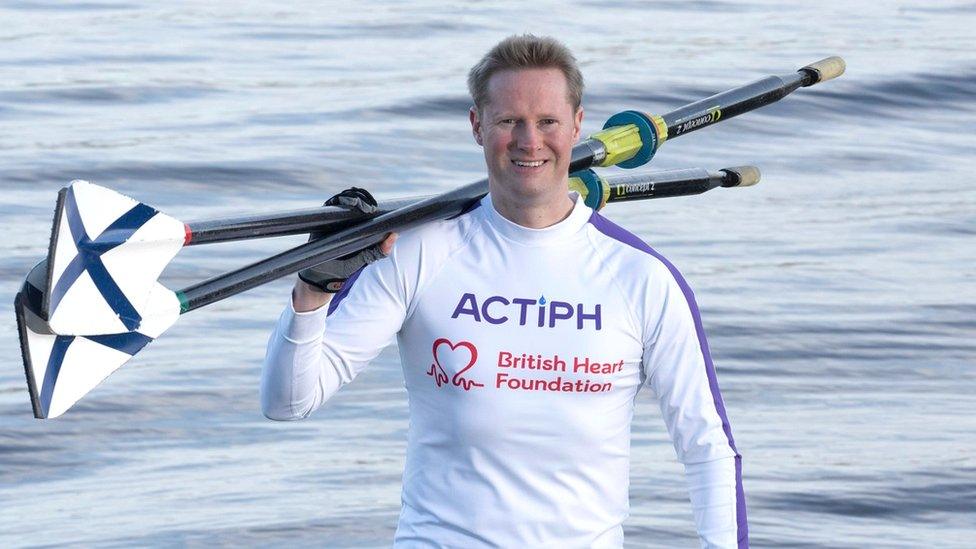I can't feel fingertips after rowing in Antarctic seas
- Published
Rowers face treacherous conditions on record-breaking Antarctica voyage
Adventurer Jamie Douglas-Hamilton says his latest rowing challenge in the world's most treacherous waters has left him in the worst pain he has ever felt.
"I still can't feel my fingertips and can't wiggle my toes," he says.
"I couldn't even walk to the bathroom from my bed without hanging on to things along the way."
Jamie was part of a crew of six who battled 30ft (10m) waves, crippling seasickness, icy cold winds and constant terror in Antarctica's Southern Ocean and Scotia Sea.
They managed 407 miles in six days before the strong winds and the risk of frostbite led them to end the challenge early.
Jamie said the conditions from the start were "horrendous" and the crew narrowly escaped a fast-moving ice flow when leaving King George Island.
The 41-year-old Edinburgh adventurer suffered frost nip in his hands and feet during the icy row, which became excruciating on arriving home.
The trip was originally planned for December 2021 but had to be postponed as Jamie discovered he had a heart condition that he believes would have killed him on the journey.
He took on the challenge just five months after he had open-heart surgery in August 2022, which made him feel like he had been hit by a bus.
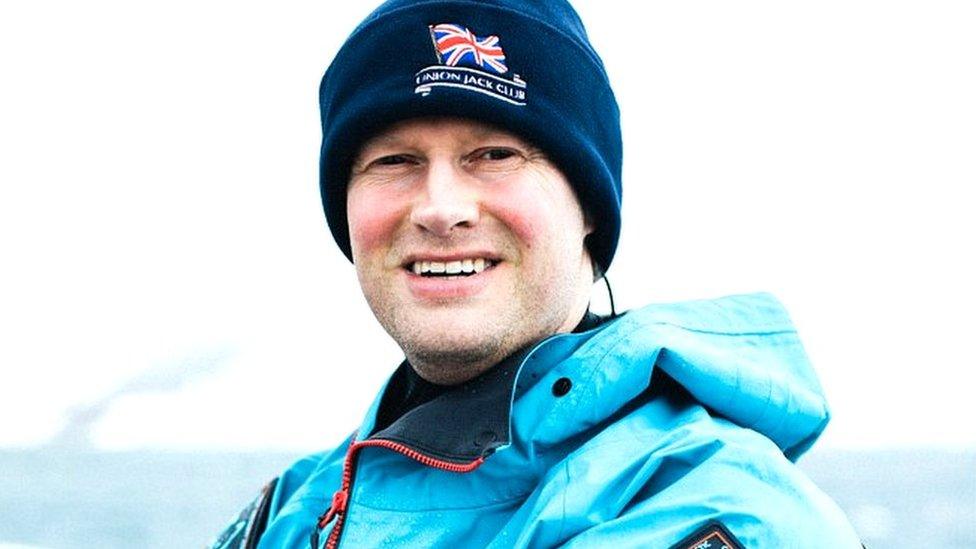
Jamie Douglas-Hamilton said the trip was the hardest thing he has ever done
The international crew set off on 11 January from King George Island, 120km (75 miles) off the coast of Antarctica in the Southern Ocean.
They rowed in 90-minute shifts for six days.
The challenge took them via Elephant Island to Laurie Island, the second largest of the South Orkney Islands - about 604km (375 miles) north-east of the tip of the Antarctic Peninsula.
They had originally planned to carry on another 500 miles to South Georgia Island but the conditions were too tough.
"We all suffered from sea sickness to some degree and one member had chronic sea sickness to the point he couldn't hold any food or liquid down and was evacuated to the supervising vessel following us before getting hypothermia," Jamie said.
"The strong westerly and north-westerly winds made getting far enough north to reach South Georgia less and less likely, and if we had continued we would have had less than 50% chance of getting there.
"This became all the more clear with one rower down and several others developing frost bite."
Jamie added: "The waves were enormous and it was like looking up at fast moving walls of water the size of warehouses.
"We came so close to fully capsizing many times in the freezing water. It was very worrying.
"These rowing boats are designed for the warm weather of mid-Atlantic crossings and the cabins were like cold, humid fridges with everything being soaking wet including our sleeping bags.
"Our legs would sometimes shake uncontrollably and then this moved to our torso and came close to hypothermia."
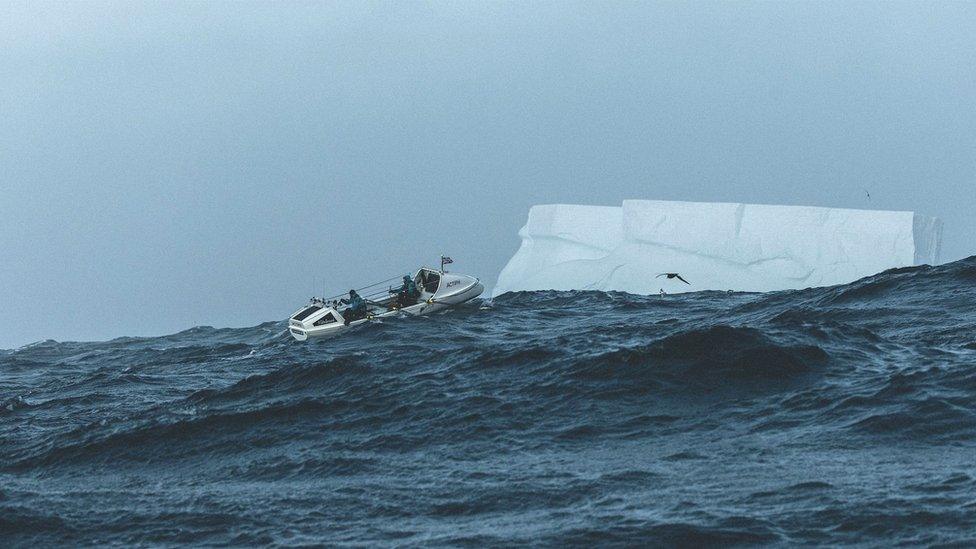
The team had to contend with huge 30ft (10m) waves on the expedition
Despite ending the challenge early the crew did achieve eight world records including the longest distance rowed on the Southern Ocean.
Jamie said he had taken on the expedition in honour of Harry McNish - the "forgotten hero" of Sir Ernest Shackleton's Endurance voyage, which attempted to be the first to cross the Antarctic continent.
McNish was on Shackleton's ill-fated voyage, which ended with the expedition vessel being sunk by pack ice in October 1915.
Despite McNish building a new boat on the pack ice with frostbitten hands, he was denied the Polar Medal because he had fallen out with Shackleton.
He used flour and seal blood to seal the hull and without him they would have all perished.
Jamie is calling for the Polar Medal to be awarded posthumously to McNish, who died destitute in New Zealand, unable to use his hands due to frostbite from the trip.
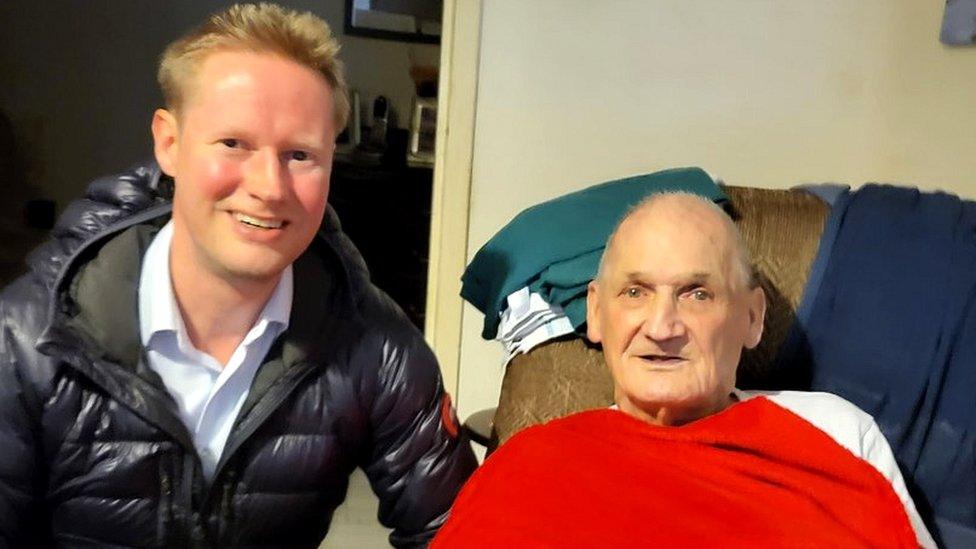
Jamie Douglas-Hamilton with Harry McNish's great nephew, John McNish
Jamie has previously completed three other dangerous rowing challenges.
He was part of a team which rowed from Chile to Antarctica in 2019 and has rowed Drakes Passage.
He said despite only lasting six days, this latest row was tougher than his previous ones and the frost nip in his fingers and feet could take months to fully recover from.
Jamie said: "Despite all the suffering there were beautiful moments - being followed by penguins, whales, orcas and seeing enormous icebergs the size of towns."
Sir Ranulph Fiennes, who is acclaimed by the Guinness Book of World Records as "the world's greatest living explorer", said: "I did once row all the way up the Thames from Windsor to Henley but to row in 90-minute shifts, eight times per day in the world's coldest and roughest seas in less than five months after open heart surgery is inspirational."

The world records achieved by the Shackleton Mission:

First row from Antarctica
First row on Scotia Sea
First to row Southern Ocean from south to north
Fastest row on Southern Ocean
Fastest polar row
Southernmost start of a rowing expedition
Longest distance rowed on the Southern Ocean (407 miles)
Most rows on Southern Ocean is two by Jamie Douglas-Hamilton (United Kingdom), Fiann Paul (Iceland)

Related topics
- Published19 February 2023
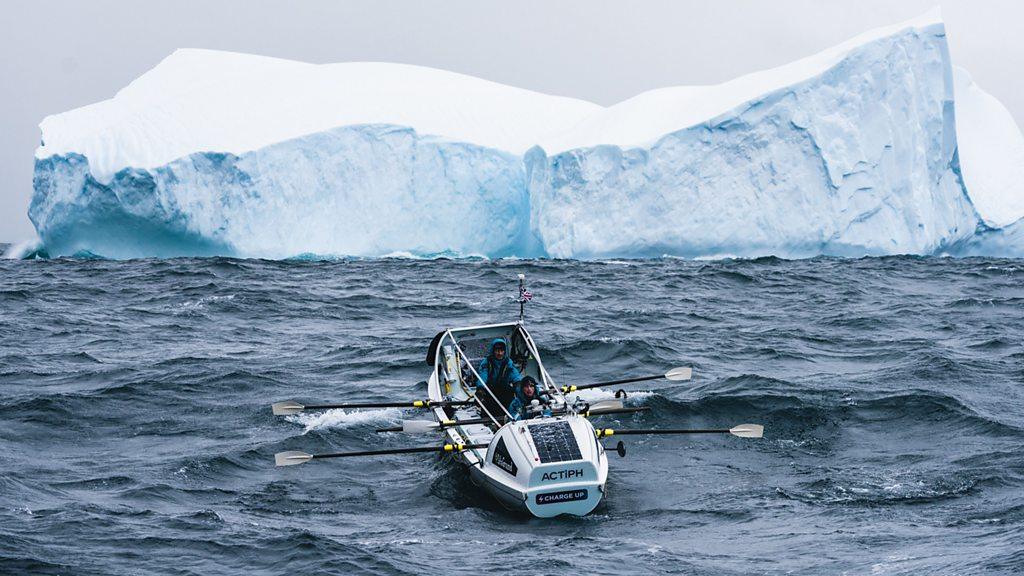
- Published12 December 2022
